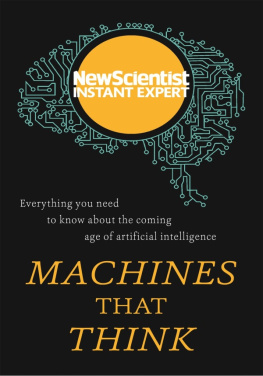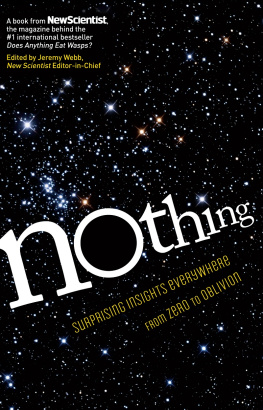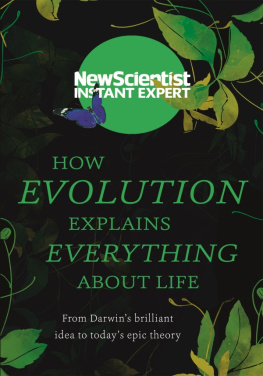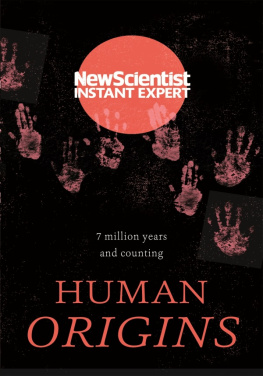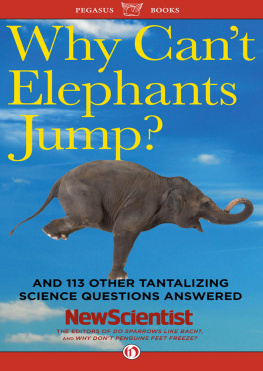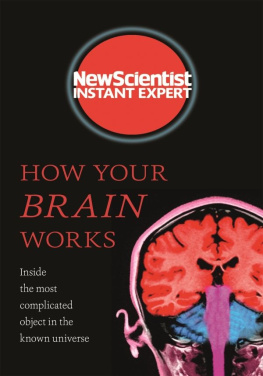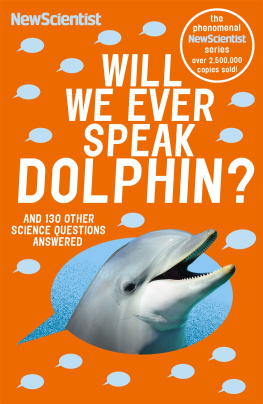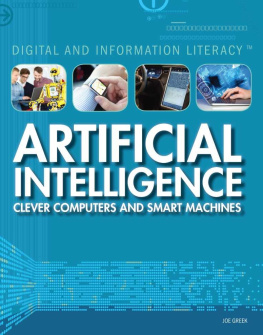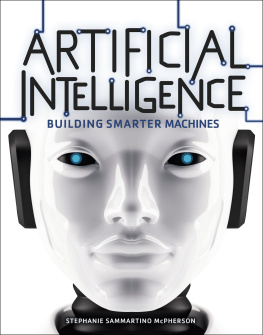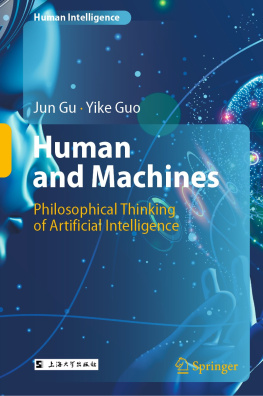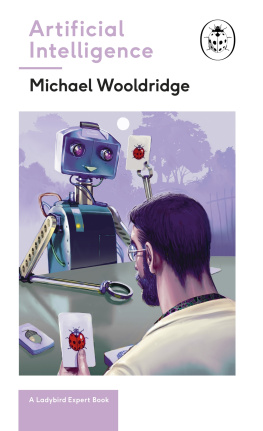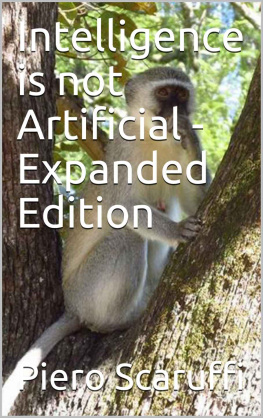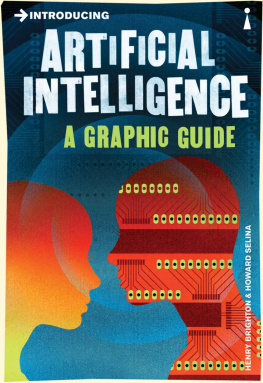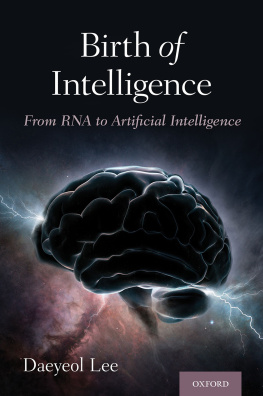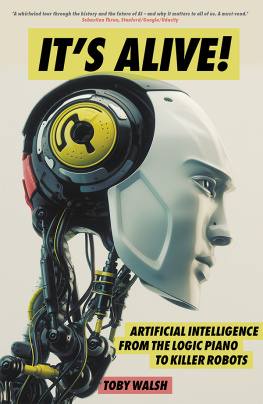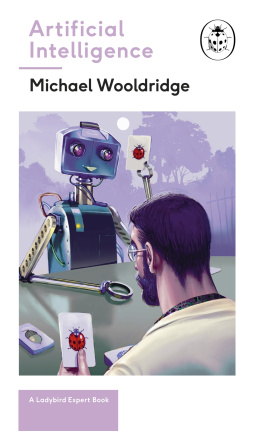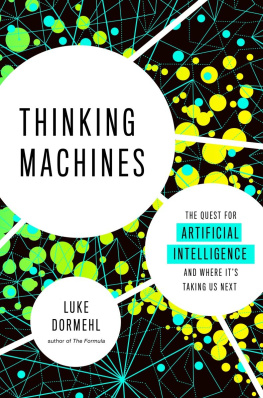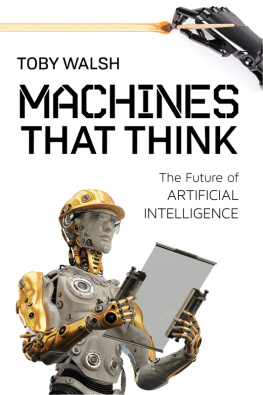Machines that Think
Everything you need to know about the coming age of artificial intelligence
NEW SCIENTIST
Contents
Series introduction
New Scientists Instant Expert books shine light on the subjects that we all wish we knew more about: topics that challenge, engage enquiring minds and open up a deeper understanding of the world around us. Instant Expert books are definitive and accessible entry points for curious readers who want to know how things work and why. Look out for the other titles in the series:
The End of Money
How Evolution Explains Everything about Life
How Your Brain Works
The Quantum World
Where the Universe Came From
Why the Universe Exists
Your Conscious Mind
Contributors
Editor: Douglas Heaven is a technology journalist and New Scientist consultant. He was previously chief technology editor at New Scientist and launch editor at BBC Future Now.
Series editor: Alison George is Instant Expert editor at New Scientist.
Academic contributors
Nick Bostrom wrote the section What happens if AI becomes smarter than we are? in . He is the director of the Future of Humanity Institute at the University of Oxford and the author of Superintelligence: Paths, Dangers, Strategies (2014).
Nello Christianini wrote parts of . He is a professor of artificial intelligence at the University of Bristol, UK, and author of machine-learning textbooks including Kernel Methods for Pattern Analysis.
John Graham-Cumming wrote parts of . He is a programmer, amateur codebreaker and the author of The Geek Atlas (2009). In 2009 he successfully campaigned for an official apology for Alan Turing from the UK government.
Peter Norvig wrote parts of . He is the director of research at Google and co-author of Artificial Intelligence: A Modern Approach (1994). Previously, he directed the Computational Sciences Division at NASAs Ames Research Center.
Anders Sandberg wrote the section Can software suffer? in . He is a researcher at the Future of Humanity Institute at the University of Oxford, studying low-probability but high-impact risks of new technologies.
Toby Walsh wrote the section Five reasons the Singularity will never arrive in . He is a professor of artificial intelligence at the University of New South Wales, Australia. He is the author of Its Alive! Artificial Intelligence from the Logic Piano to Killer Robots (2017).
Thanks also to the following writers and editors:
Sally Adee, Gilead Amit, Jacob Aron, Chris Baraniuk, Catherine de Lange, Liz Else, Niall Firth, Nic Fleming, Amanda Gefter, Douglas Heaven, Hal Hodson, Virginia Hughes, Kirstin Kidd, Paul Marks, Justin Mullins, Sean ONeill, Sandy Ong, Simon Parkin, Sumit Paul-Choudhury, Timothy Revell, Matt Reynolds, David Robson, Aviva Rutkin, Vicki Turk, Prue Waller, Jon White and Mark Zastrow.
Introduction
Artificial intelligence (AI) is the defining trend of our times. In the last ten years or so, computers have been trained to perform ever more complex tasks. They are now adept at a striking range of things that we once believed only humans could do. From identifying people in a crowd to driving cars in heavy traffic to beating the best human players at Go a game thought untouchable by AI for years the successes keep coming. Sometimes they do these things better than we do. They nearly always do them faster or for longer, never flagging.
Thinking machines are not new, of course. We have been trying to build computers that exhibit some of our intelligence for around 75 years. And the concept of human-like automatons goes back centuries. We are fascinated by ourselves and our intelligence, especially so it is no wonder we are compelled to replicate that human spark in our machines.
But the parallels between artificial intelligence and our own bring unease as well as wonder. How like us will AI become? Will it replace us pushing us out of jobs, outperforming us in the games and creative pursuits that give our lives meaning? Public figures such as Stephen Hawking and Elon Musk have gone as far as raising the spectre of an AI apocalypse, where super-intelligent future machines trample us underfoot in pursuit of their unfathomable goals. Musk says we are summoning the demon.
The excitable coverage reveals how deeply the challenges posed by AI have seeped into public consciousness. In reality, things are unlikely to play out like a disaster movie but we can expect the future to be equally spectacular and possibly far stranger.
We have seen tech bubbles before, such as the dotcom boom and bust of the late 1990s. The hype surrounding AI and the billions being pumped into it by companies around the world parallel the breathless buzz of the early days of the web. But this time it feels different. The changes to our everyday lives will be significant, from the way we interact with our devices to how we get around to how society operates. There are some who think that AI will even change what it means to be human.
As we approach the technical and ethical challenges ahead, this New Scientist Instant Expert guide will tell you everything you need to know about AI. Gathering together the thoughts of leading researchers and the very best of New Scientist magazine, it will bring you up to speed with what those shaping our future are doing and how they see it all panning out. If you want to know about the hopes and fears of those at the cutting edge of AI what one early pioneer described as the last invention we need ever make then read on.
Douglas Heaven, Editor
In our image
The challenge of creating intelligent machines
We have long suspected that intelligence is not exclusively a human quality and for more than 75 years we have dreamed of building machines that can reason and learn as well as a human can. With the dawn of computing it seemed as if we might be close to achieving that goal, but creating machines in our own image turned out to be far more difficult than we ever imagined.
What is artificial intelligence?
The field of artificial intelligence (AI) is the science and engineering of machines that act intelligently. That raises a vexing question: what is intelligent? In many ways, unintelligent machines are already far smarter than we are. But we dont call a computer program smart for multiplying massive numbers or keeping track of thousands of bank balances we just say it is correct. We reserve the word intelligent for uniquely human abilities, such as recognizing a familiar face, negotiating rush-hour traffic or mastering a musical instrument.
Why is it so difficult to program a machine to do these things? Traditionally, a programmer will start off knowing what task they want a computer to do. The knack in AI is getting a computer to do the right thing when you dont know what that might be.
In the real world, uncertainty takes many forms. It could be an opponent trying to prevent you from reaching your goal, say. It could be that the repercussions of one decision do not become apparent until later you might swerve your car to avoid a collision without knowing if it is safe to do so or that new information becomes available during a task. An intelligent program must be capable of handling all this input and more.
To approximate human intelligence, a system must not only model a task, but also model the world in which that task is undertaken. It must sense its environment and then act on it, modifying and adjusting its own actions accordingly. Only when a machine can make the right decision in uncertain circumstances can it be said to be intelligent.

